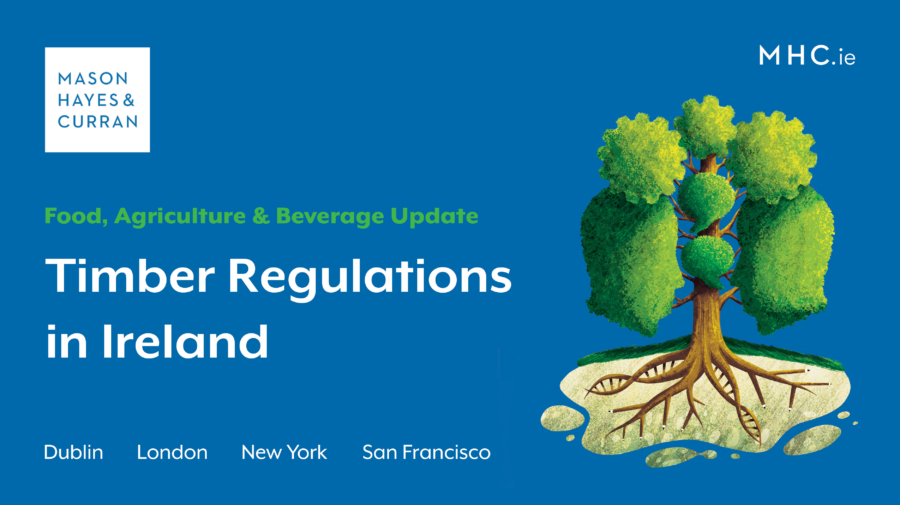Timber Regulations in Ireland

With an increased focus on sustainable forestry, EU and Irish legislation aims to prevent global trade in illegal timber and timber products. Our Public, Regulatory & Investigations team examines this legislation and the impact it has on Irish and international organisations, from forestry farmers to retailers that are involved in the trade of timber and timber products, such as furniture and paper products.
Prevention of illegal logging and harvesting of wood, and the threat of deforestation has become a priority for the European Union (EU). As part of a suite of measures, the European Union Timber Regulation (EUTR) has been in force since March 2013. It prohibits trading on the EU market of illegally harvested timber and timber products.
This applies irrespective of the country of origin and places additional responsibilities on any organisation or individual who places timber or timber products on the EU market for the first time. Timber products include a variety of goods such as pulp and paper products and fuel wood.
Who does the EUTR apply to?
The EUTR draws a distinction between operators and traders in the timber and timber market and an organisation or individual may be one, or both. An operator is an organisation or individual that first places international or EU timber or timber products on the EU market.
Traders are organisations or individuals that are buyers or sellers of international or EU timber or timber products after their first placement on the EU market.
What are the obligations under the EUTR?
Operators are required under the EUTR to implement a robust and comprehensive due diligence system (DDS) to minimise the risk of illegally harvested timber and timber products entering the EU market for the first time. An operator must be able to determine, to the satisfaction of the Department of Agriculture, Food and the Marine (the Department), which is the Irish competent authority, that there is a negligible risk that its timber or timber products have originated from an illegal source.
Traders are obliged under the EUTR to identify the sellers and purchasers of the timber or timber products, with the exception of end users. Traders are obliged to retain this information for at least five years and produce it to the Department if requested.
What are the risks of non-compliance?
The EUTR is supported by national implementing legislation, European Union (Timber and Timber Products) (Placing on the Market) Regulations 2014[1] (2014 Regulations) which provide for several sanctions.
The 2014 Regulations provide that it is an offence for an operator to fail to comply with its obligations under the EUTR and will be subject to a Class A fine on summary conviction. Where an operator is convicted on indictment, it will be liable to a maximum fine of €250,000, a prison term of up to 12 months, or both.
A trader that fails to comply with its obligations under the EUTR commits an offence and is liable to a Class A fine on summary conviction.
Conclusion
It is important for international and Irish organisations and individuals who are involved in the trade of timber and timber products to consider if it is in compliance with the EUTR. If you require advice on the scope of the EUTR and your obligations, please contact a member of our Public, Regulatory & Investigations team.
The content of this article is provided for information purposes only and does not constitute legal or other advice.
[1] S.I. No. 316 of 2014
Share this:

